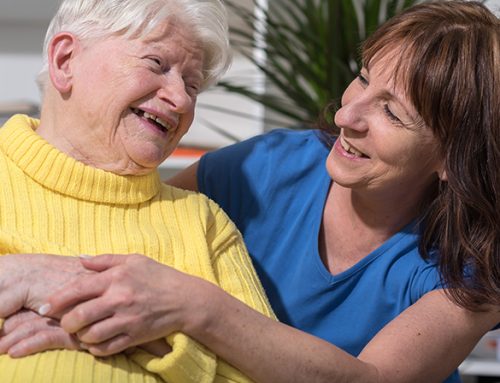Beautiful weather can quickly turn ugly when dark clouds and high winds threaten. That’s why pre-planning emergency procedures for weather-related emergencies is so important, especially for senior adults.
At The Terrace Assisted Living in Pacific, Missouri, the safety and well-being of our residents is our highest priority. When a community-wide and/or regional disaster occurs – such as a weather-related event – The Terrace is fully prepared to be self-sufficient, as response times of Emergency Medical Services and other transportation providers may be delayed. The Terrace is in contact with local and state authorities to closely monitor a situation and determine the proper response, and follow proper emergency procedures.
Evacuation Transportation & Sites. Evacuations may be planned or they may occur without warning due to a catastrophic situation. Evacuations are coordinated in two (2) phases if possible.
• Phase I includes transport of the highest acuity residents first. These residents will be transferred via ambulance if possible.
• Phase II includes transport of all other residents who can travel via buses and cars.
Evacuation sites for relocation of residents are designated during a disaster and include Marymount Manor, Camelot Nursing and Rehab, and Parkwood Care Center. Transportation for residents has been secured with the Meramec Ambulance District and Abbott Ambulance provider(s) in the event of an emergency or disaster situation requiring transportation.
Primary and alternate evacuation routes out of The Terrace’s facilities are predetermined in advance of a crisis or disaster, in accordance with the County’s Emergency Management Plan.
Emergency Packet. An Emergency Packet is assembled for each resident of The Terrace and labeled with his or her name. This packet is sent with the resident to the receiving facility when an evacuation occurs. The emergency information packet includes (1) identification bracelet(s); (2) fact sheet/data sheet that includes contact information of responsible party/family, social security number, Medicare/Medicaid/other insurance provider numbers, date of birth, list of allergies, and diagnoses/medical conditions; (3) a back-up medical record in case the original medical record is lost, misplaced, or destroyed; (4) current medications, including dose, route and schedule; (5) resuscitation instructions with a copy of “Do Not Resuscitate” (DNR) documentation, if necessary; (6) Power of Attorney and/or advance directives; (7) diet and special provisions, such as thickened liquids only; and (8) mode of transfer (two-person assist, stand-by assist, etc.).
Each resident’s emergency information is updated quarterly during care planning to ensure accurate information. Other triggers for an update may include: (1) significant change in resident’s condition; (2) hospitalization; and (3) knowledge of changes in the family such as a death, illness, or relocation.
Resident Evacuation Arrangements. The Terrace addresses planned evacuation arrangements with the family or responsible party upon each resident’s admission and at least annually thereafter. These arrangements are documented and maintained in the resident’s medical records.
Identification Wristband. During an evacuation, each resident is provided a clear/white identification wristband that includes the following information: (1) the resident’s full name and date of birth; (2) food/medication allergies; (3) critical diagnoses (diabetes, epilepsy, psychiatric diagnosis, etc.); (4) Facility name and contact number; (5) Name of physician and name of responsible parties with contact numbers for each (on back or inside of band); and (6) “Do Not Resuscitate” (DNR), if applicable. Identification wristbands are reviewed during plan of care meetings to confirm accuracy.
Medical Information Wristband. An orange critical medical information band is worn on the same wrist as the clear/white identification wristband will be utilized for each resident with special needs or risk factors. The orange band will include the following information: (1) Resident’s full name and date of birth; (2) Facility name and contact number; (3) If resident has either insulin dependent diabetes mellitus (IDDM), or non-insulin dependent diabetes mellitus (NIDDM); (4) If resident is using a thickener product or mechanically altered diet (e.g., puree, mechanical, soft, etc.); and (5) Other special needs of resident (at risk for wandering, at risk for falls, at risk for skin breakdown, etc.).
Medical Records. Medical records are designated to ensure that identification wristbands are generated for all residents.
Emergency Bags. The Terrace also provides an emergency bag with a handle for each resident in preparation of an evacuation to carry the following items for each resident: (1) Personal clothing, including gowns/pajamas, shoes, slippers, socks, and underclothes for three to four days; (2) Incontinence supplies; (3) Personal grooming items; (4) Dental supplies, dentures; (5) Hearing aids, eyeglasses; (6) Falls and skin breakdown preventative aids; (7) Hand sanitizer; (8) Preprinted labels (with name, facility name, and telephone number); and (9) Masks and other needed medical supplies. All items and medical equipment will be labeled.
Resident Tracking Log. The Terrace also maintains a Resident Tracking Log if an evacuation is necessary. The following information is included: (1) Resident name; (2) Gender; (3) Time of departure; (4) Mode of transportation and provider; (5) Destination; (6) Chart and medication sheet sent with resident; (7) Equipment sent with resident; and (8) Names of family members/responsible parties notified, date and time.
Our planned emergency procedures for weather-related emergencies are important because the safety and well-being of our residents at The Terrace Assisted Living is our highest priority!






